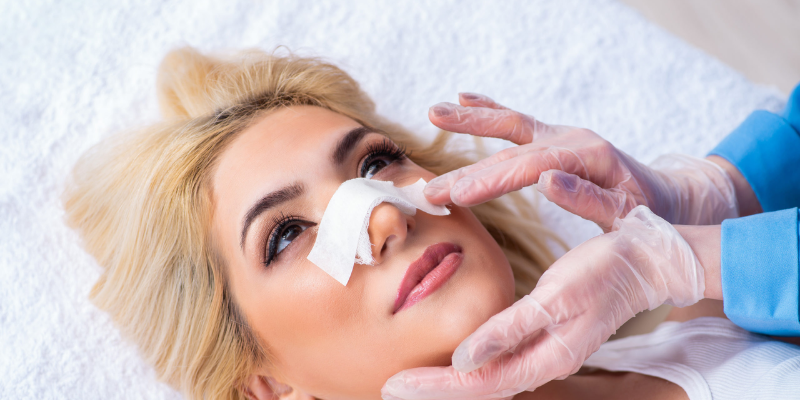Hit My Nose 5 Days After Rhinoplasty
What happens if I hit my nose 5 days after rhinoplasty? The worst fear of every patient has come true. You finally got the rhinoplasty you wanted, but now you have a bump on your nose that could completely ruin the results.
Almost every patient fears getting a “hit nose” after rhinoplasty, but is it really that bad? And what should you do if you hit your nose by accident after rhinoplasty?
Even though the thought of a bump on your nose after rhinoplasty might be scary, a small bump shouldn’t hurt your new nose in most cases. How dangerous a nose bump is will depend mostly on how hard it hit you and how long it’s been since your rhinoplasty.
Most of the time, it takes six to eight weeks for your nose to get back to the strength it had before your treatment. The first one to two weeks after the surgery are the most vulnerable for your new nose. Because of this, a small bump on the nose one month after rhinoplasty is likely to have less of an effect than a bump on the nose one week after surgery.
If your nose gets a lot of damage during the early stages of healing, the nasal bones could move out of place. This would require a rhinoplasty revision.
What Should I Do If I Hit My Nose 5 Days After Rhinoplasty?
If you don’t want to have to tell your doctor that you accidentally bumped your nose after rhinoplasty, hit your nose a week later, or your dog hit your nose after the procedure, you need to know what not to do. To lessen your chances of getting a nose bump, you should do the following:
Pay attention to what your doctor tells you about how to rest after a rhinoplasty. To keep from rolling over on your new nose by accident, it’s best to sleep with your head slightly raised and supported by pillows.
If you want to keep your nose from getting hit by your partner, child, or pet while you’re sleeping after rhinoplasty, sleep alone. Wear your nasal splint as long as your doctor tells you to. Try to stay away from any physical activity that could lead to an accident. Give your body the tools it needs to get better quickly by eating well, drinking lots of water, and getting enough sleep.
Rhinoplasty Aftercare
If you accidentally bump your nose after rhinoplasty surgery, putting a cold pack on it right away will help reduce any swelling.
If you think your nose may be broken or fractured, or if you have any reason to think that the blow could have caused serious damage, you should call your surgeon and have them check your nose for damage.
After any kind of surgery, the best things you can do for your body are to eat well, drink lots of water, and get enough rest and sleep.
Sleeping may seem easy, but if you have a painful or uncomfortable nose after a rhinoplasty, it may be harder than you think.
During the night, you might accidentally roll onto your face, hit your nose, or even scratch your nose without meaning to. Continue reading to learn how to sleep after rhinoplasty to avoid these problems and speed up your recovery.
Sleeping After Rhinoplasty
You’ll have a lot of time to rest and relax after your treatment, and sleeping is a great way to speed up your healing. So why not stay in bed and read your favorite book or watch something fun on TV?
You should be able to sleep in your regular bed for any reason, but it might be best to keep your partner and pets away from the house while you’re healing. This will make it less likely that you will have an accident at night and keep your pet from licking your wounds while they are healing.
The best position for sleeping is with your back up. This will cut down on swelling and congestion after surgery. If you use pillows, rolled-up towels, or even foam blocks to prop yourself up and support you while you sleep, you are less likely to roll onto your side. If you have a comfortable chair, this is often a better choice because you almost never end up on your side.
For the best sleep, take your painkillers right before bed and stop drinking caffeine-containing drinks in the afternoon. Most healthy people recover quickly from nose surgery, which is good news. Don’t be afraid to sleep in an elevated position for longer if you feel comfortable doing so. The benefits go beyond the time needed to get better quickly. But if you have trouble falling asleep after the first week, you should be able to lower your sleeping position.


